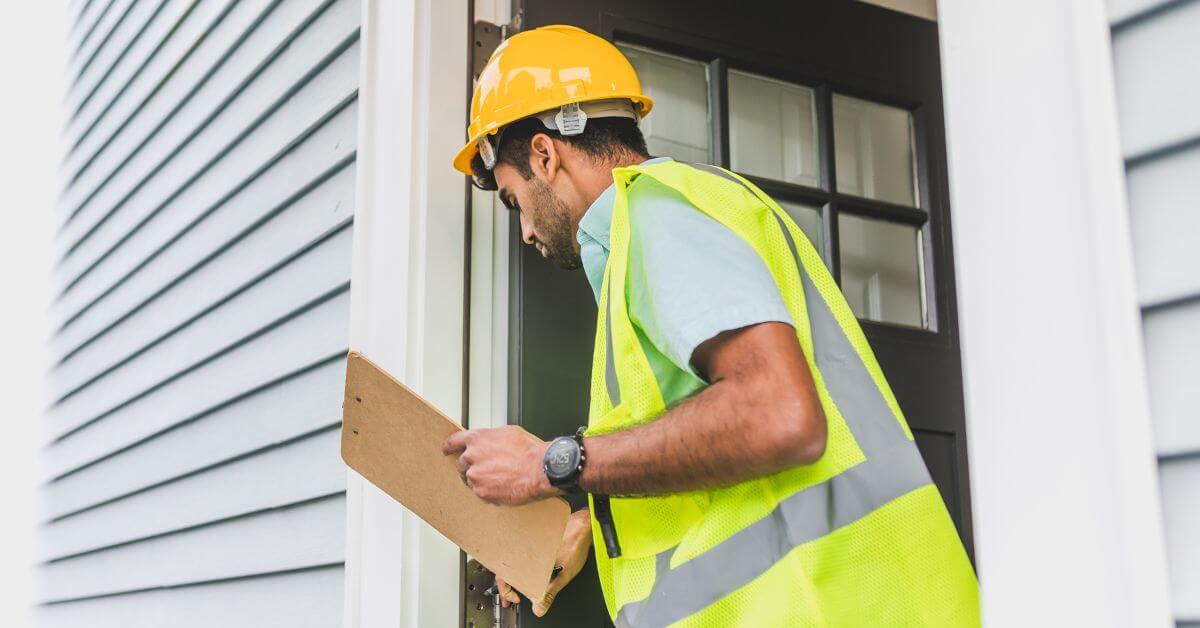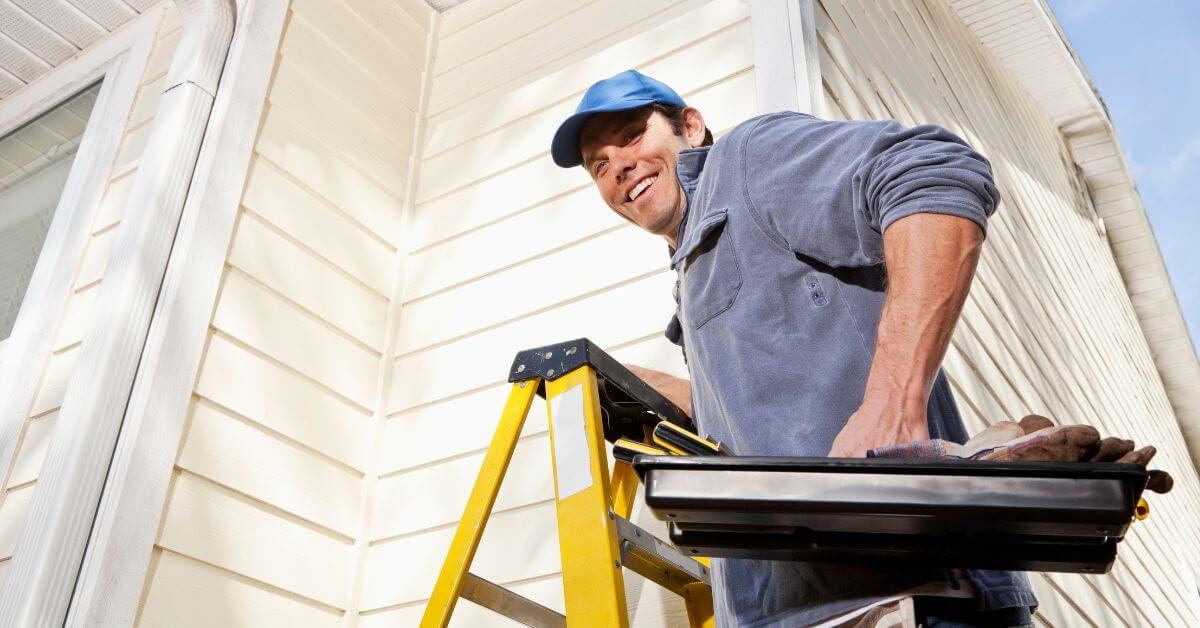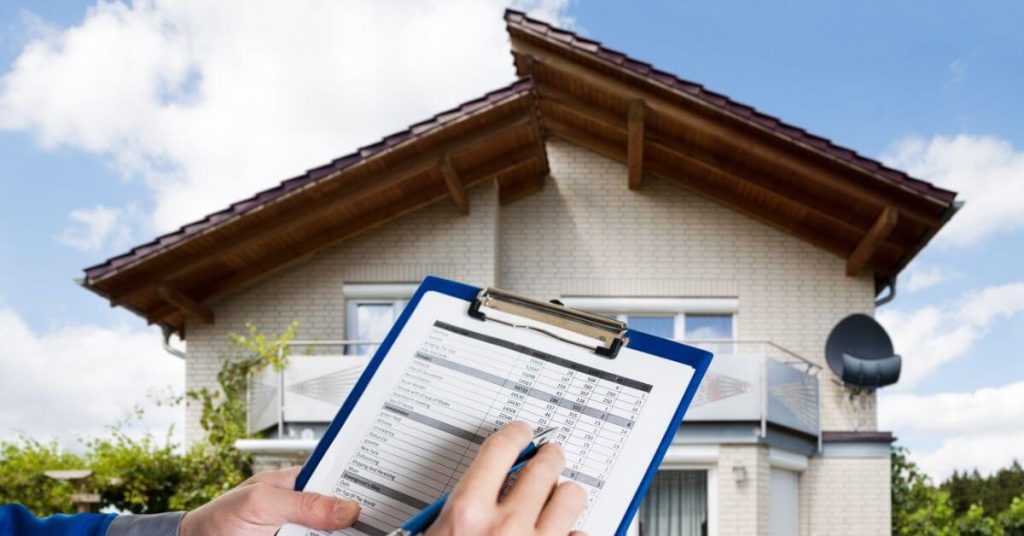Are you in search of your dream home? A place to call your own, filled with warmth and memories? Before you get too lost in the daydream, it’s essential to realize that not all homes are created equal.
Some may appear perfect on the surface, but hidden dangers and expensive repairs could be lurking underneath. That’s where an FHA loan inspection comes in.
Think of it as a superhero cape for your future home – protecting you from potential hazards and ensuring that the property is safe, secure, and sturdy enough to live in.
In this guide, we’ll walk you through the step-by-step FHA loan inspection requirements, so you’ll know exactly what to expect.
Let’s dive in and make sure your dream home doesn’t turn into a nightmare.
FHA Loan Appraisal Requirements
Do you know that in order for a house to meet the requirements for an FHA loan, it must satisfy a set of standards? These standards cover a wide range of factors that determine the value and condition of the property.
Note that the value of the house from this appraisal determines how much down payment you must pay should the FHA appraiser find no reason to disqualify the house.
Now, I can hear you thinking, “What are these standards?” and “How do they impact my ability to get an FHA loan?” The answer is simple – an FHA-approved appraiser will evaluate the property against a set of standards to determine if it meets the necessary requirements.
These requirements cover everything from the property’s structural integrity to its safety features. Here are what the FHA looks for in these appraisals.
Environmental Hazards
The property must be free from environmental hazards that could affect your health or safety, such as asbestos, lead-based paint, or radon. Your appraiser will identify any hazards and recommend necessary abatement or remediation measures to ensure that the property meets the required standards.
Property Condition
The property must also meet certain condition requirements like having a safe and sound foundation, a functional HVAC system, and a roof. The appraiser will evaluate the property’s condition and identify any necessary repairs or improvements needed to bring the property up to FHA standards.
Property Location
In addition to meeting the necessary physical requirements, the property must be situated in a suitable neighborhood. Your appraiser will evaluate the property’s location to determine its suitability for residential use.
Property Value
An FHA-approved appraiser or inspector appraises the home or property you want to buy to determine its value. The appraiser will assess various factors such as the property’s age, location, size, and other relevant factors to determine its market value, which is used to determine the loan amount you qualify for.
Miscellaneous Requirements
Another requirement for an FHA loan is that the property must have adequate rooms (bedrooms and washrooms) to accommodate all occupants. The appraiser/inspector will evaluate the property’s layout and living space to ensure that it meets the necessary FHA requirements.
FHA Loan Property Requirements

Similar to the FHA loan appraisal requirements, loan property requirements are general standards that the property must meet to qualify for an FHA loan. Some of the key FHA loan property requirements include:
1. Access
The home must have safe and legal access, including an access road or driveway. Additionally, the home must have adequate parking available for your family (all occupants).
2. Flood Hazard
If the property is in a flood zone, you might need to obtain flood insurance to protect the property and protect your FHA lender’s or our investment if you are looking at getting a property in any of these areas. And yes, we are the best around.
3. Pest Infestation
The home must be free from any active pest infestations, especially termites. If the inspector finds evidence of past or current infestations, you may need to conduct a pest inspection and provide evidence of remediation.
4. Safety Features
To ensure the safety of you and your family, the home must have safety features in place. Some of these safety features include carbon monoxide and smoke detectors, giving you valuable time to evacuate the property.
5. Water and Sewer Systems
The home must have a safe and reliable water supply and a functioning sewage system. If the property is served by a well or septic system, it should meet FHA requirements.
In addition, there are other FHA loan conditions of property requirements, including:
- Electrical and Plumbing Systems: The electrical and plumbing systems in the home must be in good working order and meet all local building codes. In addition, the property must have adequate wiring and plumbing to meet the needs of the occupants.
- Heating and Cooling Systems: The home must have a functional heating system capable of maintaining a minimum temperature of 50 degrees Fahrenheit in all living spaces. The property must have a functional cooling system if it is located in a warm area.
- Roofing: The home must have a roof that is in good condition meaning the roof should be structurally sound and free from any damages or leaks that could potentially harm the property or its occupants.
- Structure: The home’s floors, foundation, and walls must be structurally sound and free from any major defects that could affect its liveability and the safety of the occupants.
- Windows and Doors: The windows and doors must be in good condition and free from any damage that could impact the safety or security of the home.
FHA Home Loan Roof Requirements
The FHA home loan roof requirements are part of the FHA property standards that must be met to qualify for an FHA-backed mortgage. Some of the requirements for roofs on properties include:
- Roof Condition: The property’s roof must be in good condition and have at least two years of useful life. The FHA requires that the roof have no defects that may affect the property’s safety, soundness, or structural integrity.
- Roof Drainage: The FHA requires that the property’s roof have adequate drainage to prevent water from pooling and causing damage to the property. This includes the gutters, downspouts, and drainage systems.
- Roofing Materials: The FHA requires that the roofing materials used on a property are appropriate for the climate and region where the property is located. The roofing materials should be durable and able to withstand the elements such as wind, rain, and snow.
- Roof Leaks: The FHA requires that a property’s roof have no leaks. The appraiser will inspect the roof for signs of leaks, such as damage to the ceilings or walls of the property, water stains, etc.
- Roof Ventilation: The FHA requires a property’s roof to have adequate ventilation to prevent moisture buildup and mold. The appraiser will inspect the attic and roof for proper ventilation.
FHA Loan Repair Requirements

The FHA loan repair requirements are a set of guidelines that outline specific repairs or improvements that may need to be made to a property to meet FHA property standards and qualify for an FHA-backed mortgage. Some of the key FHA loan repair requirements you should know include:
- Property Standards: A property must meet certain minimum property standards established by the FHA. This includes addressing issues such as adequate HVAC (heating, ventilation, and air conditioning) systems, functional electrical systems, and plumbing and working appliances.
- Repairs and Renovations: If a property needs repairs or renovations to meet the FHA’s requirements, you may be required to complete them before your loan is approved. You must hire a licensed contractor for the repairs, which must be approved by the FHA appraiser.
- Structural Problems: The property must be structurally sound and free of any major structural problems. This includes addressing issues such as foundation problems, significant roof damage, and wall cracks.
Home Inspection Requirements for FHA Loans
While FHA loans do not require a full home inspection, you are strongly encouraged to get one to find any potential issues with the property that may affect its value or safety. Some of the standard home inspection requirements include:
- Electrical Systems: Your home inspector will evaluate the home’s electrical system (circuit breakers, electrical panels, and wiring) to ensure it is in good working order and meets all local building codes.
- Pest Infestation: Your home inspector will look for any signs of pest infestations, such as bed bugs, mice, rats, roaches, and termites. Pest infestations can cause significant damage to the home and may require you to conduct costly repairs.
- Plumbing: Your home inspector will evaluate the plumbing (drains, pipes, and water fixtures) to ensure it is in good working order and meets all local building codes.
- Structural Components: Your home inspector will evaluate the home’s floors, foundation, roof, walls, and other structural components to ensure that they are sound and free from any major defects.
- Water Damage: Your home inspector will check the home for any signs of water damage, including leaks, mold growth, or stains. Why? Because these can indicate more serious issues such as a faulty roof.
Why Do FHA Loans Require Inspection?
FHA loans require an inspection of the property to ensure that it meets the minimum property requirements. This comes after you have been pre-approved; meet the credit score requirements, debt-to-income ratio, etc.
The inspection is done by an FHA-approved appraiser, who will evaluate the property’s condition, location, and value. The inspection aims to ensure that the property meets certain minimum standards and provides adequate security for your investment.
Similarly, the FHA refinance loans and FHA 203k loans also require an appraisal to determine the current market value of the property and ensure that the loan amount does not exceed the value of the property.
The appraisal process includes visually inspecting the home’s interior and exterior, including the floors, foundation, roof, and walls. The appraisal also checks the heating and cooling systems and other features that could affect the property’s value or safety.
If the appraiser identifies any problems or areas that do not meet FHA standards, you may be required to address these issues before your FHA loan can be approved. For instance, if the property has a leaky roof, you might need to repair it.
Who Pays for Appraisal on FHA Loan?

Per FHA guidelines, you, the borrower, are responsible for all costs associated with the loan, including the appraisal costs. Appraisal costs vary depending on the complexity of the appraisal and the property’s location, albeit most appraisals cost about a thousand dollars.
Your lender usually requires you to pay for the appraisal upfront before the appraisal is done. You can pay for an appraisal using cash, check, or a card (credit or debit).
It’s worth noting that appraisal costs are separate from other closing costs associated with FHA loans, such as origination and title search fees.
Frequently Asked Questions
Are FHA inspections stricter than conventional?
Yes, FHA loans are stricter than standard inspections. For starters, FHA inspections have minimum property standards but the same can’t be said for routine inspections. In addition, FHA inspections are more comprehensive than conventional inspections.
What are FHA inspection requirements?
FHA inspection requirements are specific standards that must be met for a property to qualify for an FHA loan. These requirements are designed to ensure the property you’re buying is safe and habitable so that you don’t have problems down the line. These inspection requirements are in addition to the FHA loan requirements that determine your eligibility.
What disqualifies a home from an FHA loan?
A home is disqualified from an FHA loan if it’s in poor condition and doesn’t meet the set minimum requirements. The property should also be in an FHA-approved location. Other factors that may disqualify a home from an FHA loan include:
- Location: The house must be situated in an FHA-approved geographic area. If the property is situated in an area not approved by the FHA, it may be disqualified.
- Title Issues: The house must have a clear title, and there can be no outstanding liens or other issues that may affect its ownership. If there are any title issues, the house will be disqualified.
What will fail an FHA inspection?
A property will fail an inspection by an FHA-approved inspector if it has electrical and plumbing issues, health and safety hazards, structural integrity issues, etc.
Final Thoughts
The FHA loan inspection requirements are a crucial aspect of the home purchase process if you’re using an FHA loan. These requirements vary depending on the property, and while they may seem like a lot to take in, they’re there for your good.
You want to make sure the property you’re buying is safe and habitable, and the FHA has your back on that front. Got questions? Don’t hesitate to reach out to us. We’re here to help you find the home of your dreams!






